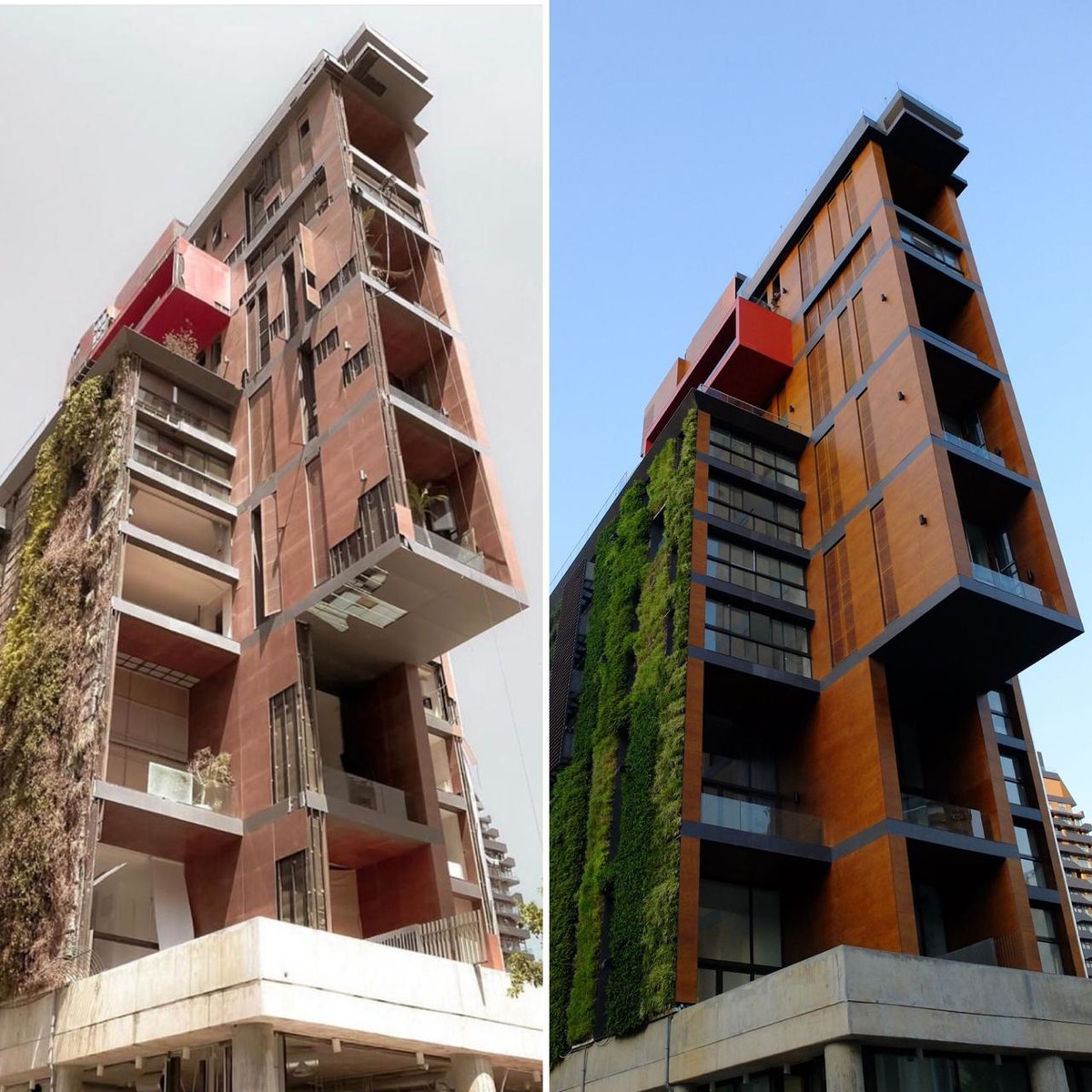DUBAI: Just minutes before the explosions rocked Beirut on Aug. 4, Jean-Marc Bonfils was at the window of his apartment in the East Village tower in Mar Mikhael, filming a video of the fire at the city’s nearby port.
It was the last thing the French-Lebanese architect posted on his Facebook page before the main explosion ripped through the city and claimed his life. Badly injured in the blast, he was taken to the American University of Beirut Medical Center where he died a few hours later. He was 57 years old.
For the long-time defender of Lebanese heritage, the East Village tower — a 13-floor structure with two pools, an impressive 300-square-meter vertical garden and the Galerie Tanit art gallery — represented his signature architectural style: a fusion of modern architecture and elements taken from traditional Lebanese structures. The tragedy reduced it to rubble.
“Bonfils was a very open and kind man — even if he could be tough sometimes, his students loved him,” said Naila Kettaneh Kunigk, the founder of Galerie Tanit, which was destroyed by the explosion.
“He was a very sweet man with lots of energy and always understanding. He put so much love into the East Village tower and received several international prizes for it.”
The slim apartment building was built from dark stone and wood, reminiscent of traditional Lebanese architecture. In 2015 it won the Asia Architecture Award in the housing division.
Both Kunigk and Bonfils were members of the National Heritage Foundation. When she was planning to open a gallery, he offered to help.

The two photos show the damage caused by the Beirut blast (L), the windows smashed out, the vertical garden destroyed. (Image: Jean Marc Bonfils Architects)
“He told me he wouldn’t just design my gallery but build my gallery,” she said. “I was skeptical at first as I just wanted to have a showroom, but he created such as beautiful plan that I immediately agreed.”
Bonfils, who was born in 1963 in Beirut to a family that had moved to Lebanon from France during the 19th century, was a prominent figure in the reconstruction of Beirut’s downtown area following the country’s devastating civil war. His father, Maurice Bonfils, was also a well-known architect in Beirut.
The younger Bonfils studied at the Paris-Villemin School of Architecture, the École du Louvre and the Architectural Association School of Architecture in London. Early in his career he trained with some of the most cutting-edge French architects of the 1980s and 1990s, including Christian de Portzamparc, Alain Sarfati, Architecture-Studio, ARTE-Charpentier, and Maurice Bonfils architects.
In 1995, he and his father were chosen to lead the reconstruction of downtown Beirut. It was a challenging project and occupied him throughout the rest of his life. In 2005, after his father retired, Bonfils launched his own firm, Jean-Marc Bonfils Architects, which created some of the most ground-breaking structures in Lebanon, spanning residential, commercial, cultural and multi-use projects.
It employed about 15 architects and carried out close to 100 projects in the Middle East and internationally, including in France, Nigeria, the UAE and Saudi Arabia. Notable projects include the Villa Hajjar in Hazmieh, Lebanon, Impact BBDO’s head office in Dubai, several public schools and two eco-museums in Turbol and Ras Baalbeck.
He worked on urban planning in other Lebanese cities, including Byblos and Baalbek. He also taught at the American University of Beirut and, later, at the Lebanese Academy of Fine Arts, and served as an adviser to former Lebanese Minister of Culture Mohamed Youssef Beydoun.
French Minister of Culture Roselyn Bachelot confirmed that Bonfils was among 21 French nationals who died in the Beirut blast. At the time of his death, he was designing several private villas and a hospital, for which he had won a competition.
He was also working on the re-establishment of the Lebanese National Library. Until the end, Lebanon, and in particular its rich history, culture and heritage, was of the utmost importance to Bonfils, who devoted a large part of his life to the reconstruction of battle-scarred Beirut.
Twitter: @rebeccaaproctor






























